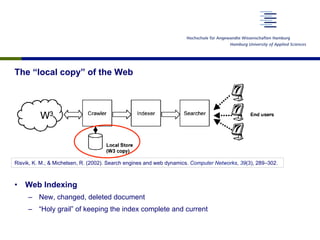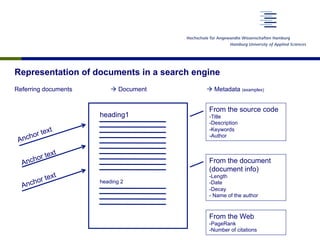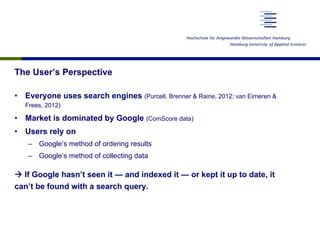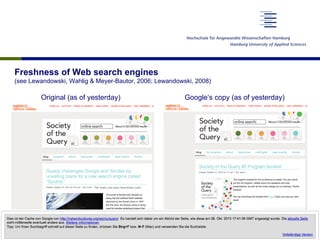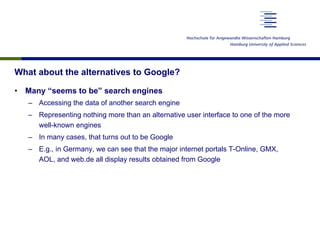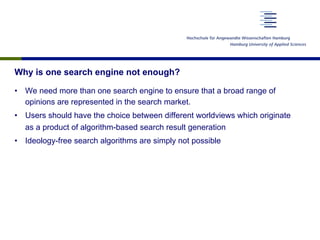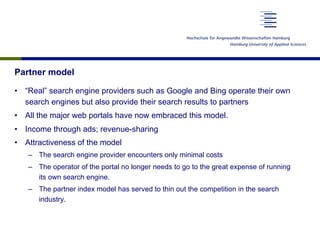Dirk Lewandowski argues that an independent index of the web is needed to ensure competition in the search market and representation of different viewpoints. Currently, most search engines rely on Google's index, and it is too costly for alternatives to build their own. Lewandowski proposes creating an index that can be accessed fairly by all to enable new search applications to be developed and motivate more competition. Funding would need to come from a pan-European initiative and the index would be operated by an independent research institution. This could spur innovation and provide alternatives to current search engine models.

